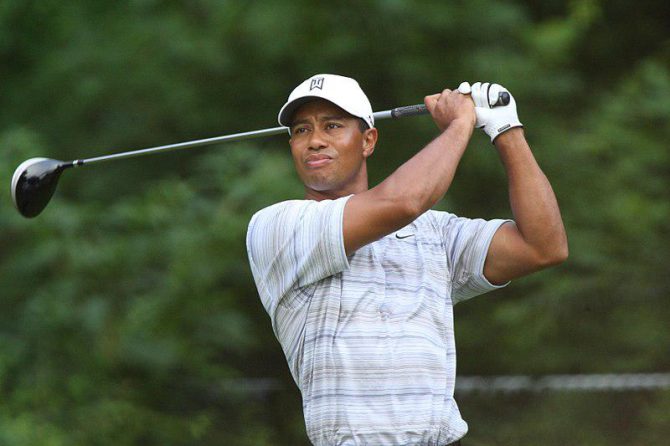The Emotional Toll of Competing: Insights from Rory McIlroy
Rory McIlroy’s recent incident on the golf course, where he took a fan’s phone after being heckled about a previous mistake, has ignited conversations regarding the immense pressures that elite athletes face. This unexpected reaction during a practice round at The Players Championship not only underscores the emotional intensity inherent in competitive sports but also offers deeper insights into maintaining composure under public scrutiny.
Understanding the Pressures Faced by Athletes
This incident serves as a poignant reminder of the human side of professional sports-where expectations, public attention, and emotional strain can lead to moments of frustration. As an accomplished golfer with a notable career, McIlroy often grapples not just with physical challenges but also with psychological pressures that come from distractions and provocations. Rory McIlroy’s frustration boiled over during the U.S. Open as he famously smashed a tee marker and hurled his club in a moment that captured the intensity of the competition. This incident reflects not only McIlroy’s competitive spirit but also the intense pressure he feels to perform at the game’s highest level, especially in a major championship setting.
In a sport that demands both precision and mental strength, external noise can considerably impact performance. Fans may not fully grasp how thinly athletes tread between delivering their best and managing mental fatigue caused by public interactions. Here are some key factors illustrating what athletes like McIlroy endure:
- Public Scrutiny: Every shot is analyzed; every choice is subject to criticism, which heightens stress levels.
- Self-Imposed Standards: Athletes often set exceedingly high expectations for themselves, intensifying their responses to outside disturbances.
- Fan Engagement: While fans are vital to sports culture, certain interactions can become intrusive or hostile.
This emotional outburst provides insight into the psychological resilience required at top-tier competition levels. It raises essential questions about how modern athletes balance their professional responsibilities with personal emotions. The episode reminds us that beneath their polished exteriors, professional golfers experience similar feelings of frustration and vulnerability as anyone else when faced with undue pressure.
The Challenge of Personal Privacy in Competitive Sports
The confrontation between McIlroy and a fan highlights important issues surrounding personal privacy in high-stakes athletics today. In our social media-driven world where instant sharing is commonplace, athletes find themselves under constant observation-a situation that can escalate emotions when personal boundaries are crossed. This incident exemplifies how pressure manifests unexpectedly when an athlete’s focus on performance is disrupted by external distractions.
Athletes recognize they are public figures; however, finding equilibrium between accessibility and privacy remains challenging. The heckling during his practice round illustrates broader concerns regarding blurred lines between entertainment value and personal space-placing players in uncomfortable situations where they feel their integrity is compromised. Such occurrences prompt discussions about fan obligation and self-regulation within spectator behavior.
The ramifications extend beyond immediate reactions; they can affect an athlete’s performance and also mental health over time. With recording devices omnipresent at events today, private moments frequently become viral sensations-underscoring the need for clearer boundaries around personal space within sporting environments to ensure athlete well-being.
Promoting respect among spectators could foster more supportive atmospheres for both players and fans alike.
A Call for Enhanced Mental Health Support for Athletes
The recent episode involving Rory McIlroy sheds light on critical issues related to professional athletes’ mental health challenges stemming from intense scrutiny during competitions.
Factors contributing to this pressure include:
- Pervasive public expectation for excellence;
- Demanding training schedules frequently encroaching upon personal time;
- Sizable financial stakes impacting livelihoods and career paths;
Mental health awareness continues gaining traction within sports circles-it emphasizes creating systemic support structures tailored specifically for helping athletes navigate these hurdles effectively.
Sports organizations must prioritize fostering environments conducive to mental wellness through initiatives such as:
- Providing access to qualified mental health professionals;
- Implementing workshops focused on building resilience;
- Cultivating open dialogues surrounding mental health topics among teams;
This reaction from prominent figures like McIlroy highlights an urgent need for cultural shifts regarding perceptions around athlete mental wellness in competitive settings.
By addressing these matters comprehensively now rather than later could help mitigate crises before escalating further while promoting longevity among those who shine brightly under pressure!
Navigating Controversy: Guidelines for Future Athlete Conduct
In light of incidents such as Rory’s phone-grab moment it becomes imperative that all involved reflect upon behaviors exhibited publicly along with potential repercussions thereof! An individual’s conduct impacts not only one’s reputation but also shapes perceptions held towards their respective sport overall! To navigate controversies effectively moving forward consider implementing these strategies:
- Emotional Intelligence: Cultivating awareness & management skills concerning emotions experienced amidst high-pressure scenarios prevents impulsive actions leading towards backlash!
- Engagement Protocols: Establishing clear guidelines governing interactions ensures professionalism maintained throughout events fostering respectful exchanges!
- Communication Training: Actively engaging in media training equips individuals to handle unexpected situations gracefully!
Moreover, developing robust support systems inclusive of coaches/public relations professionals provides immediate guidance whenever challenges arise ensuring informed decisions are made instead of reacting hastily. Consistent training and proactive strategies remain crucial in maintaining poise and composure during volatile circumstances.
| Recommendation | Purpose |
|---|---|
| Emotional Intelligence | Prevents rash decisions under pressure. |
| Engagement Protocols | Promotes respectful interactions amongst fans. |
| Communication Training | (enhances media handling skills). |
Athletes should embrace responsibility serving as role models both inside and outside fields or courts alike! Their conduct influences careers while inspiring countless admirers, especially younger generations looking up to them! By remaining mindful of the actions taken, they create positive legacies extending far beyond mere achievements attained competitively!
Rory’s recent outburst against hecklers has sparked widespread dialog concerning pressures faced by professionals competing at the highest levels possible today! While shocking initially, it sheds light on the intense scrutiny and provocations endured regularly throughout major tournaments! As he navigates the intersectionality of performance and public perception, his actions serve as a reminder of the humanity inherent within all aspects of sporting endeavors. Moving forward, the golf community will likely continue reflecting on the implications arising from incidents, considering the importance of prioritizing well-being alongside the roles played by spectators in enhancing or detracting from the experiences enjoyed collectively!








